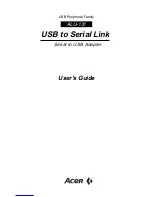
S e n d d o c u m e n t a t i o n c o m m e n t s t o m d s f e e d b a c k - d o c @ c i s c o . c o m
16-14
Cisco MDS 9000 Family CLI Configuration Guide
OL-16184-01, Cisco MDS SAN-OS Release 3.x
Chapter 16 Configuring PortChannels
PortChannel Protocol
cases, the channel groups have the same capability and configurational parameters. Any change in
configuration applied to the associated PortChannel interface is propagated to all members of the
channel group.
A protocol to exchange PortChannel configurations is available in all Cisco MDS switches. This addition
simplifies PortChannel management with incompatible ISLs. An additional autocreation mode enables
ISLs with compatible parameters to automatically form channel groups without manual intervention.
The PortChannel protocol is enabled by default.
The PortChannel protocol expands the PortChannel functional model in Cisco MDS switches. It uses the
exchange peer parameters (EPP) services to communicate across peer ports in an ISL. Each switch uses
the information received from the peer ports along with its local configuration and operational values to
decide if it should be part of a PortChannel. The protocol ensures that a set of ports are eligible to be
part of the same PortChannel. They are only eligible to be part of the same port channel if all the ports
have a compatible partner.
The PortChannel protocol uses two sub-protocols:
•
Bringup protocol—Automatically detects misconfigurations so you can correct them. This protocol
synchronizes the PortChannel at both ends so that all frames for a given flow (as identified by the
source FC ID, destination FC ID and OX_ID) are carried over the same physical link in both
directions. This helps make applications like write acceleration work for PortChannels over FCIP
links.
•
Autocreation protocol—Automatically aggregates compatible ports into a PortChannel.
This section describes how to configure the PortChannel protocol and includes the following sections:
•
About Channel Group Creation, page 16-14
•
About Autocreation, page 16-15
•
Enabling and Configuring Autocreation, page 16-16
•
About Manually Configured Channel Groups, page 16-17
•
Converting to Manually Configured Channel Groups, page 16-17
About Channel Group Creation
Note
Channel groups are not supported on internal ports in the Cisco Fabric Switch for HP c-Class
BladeSystem and the Cisco Fabric Switch for IBM BladeSystem.
Assuming link A1-B1 comes up first in
Figure 16-8
, that link is operational as an individual link.When
the next link, say A2-B2 comes up, the PortChannel protocol identifies if this link is compatible with
link A1-B1 and automatically creates channel groups 10 and 20 in the respective switches. If link A3-B3
can join the channel groups (and hence, the PortChannels), the respective ports have compatible
configurations. If link A4-B4 operates as an individual link, it is because of the incompatible
configuration of the two end ports with the other member ports in this channel group.
















































